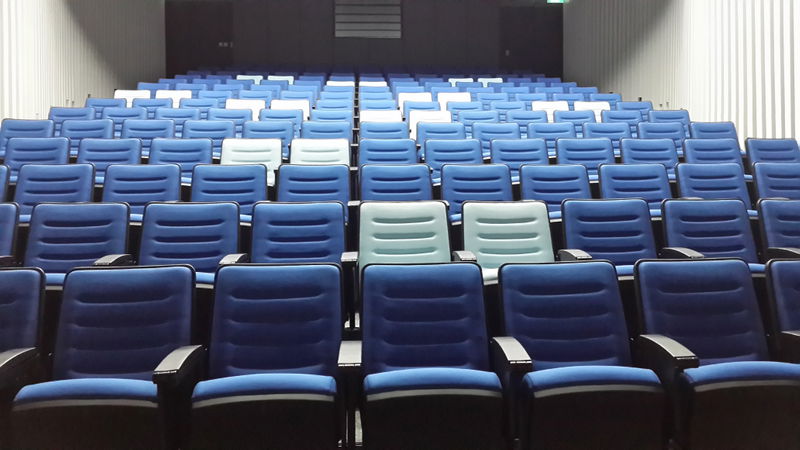Utilizing Multimedia for SEO Success
Brand visibility increases when businesses utilize multimedia components such as videos and images fortheir search engine optimization (SEO). These accessible tools open numerous pathways to potential customers, helping to create recognition and establish relationships. Experienced and novice businesses alike can benefit from using both mainstream and emerging multimedia opportunities.Table of Contents:

What is Multimedia?
Multimedia is the combination of text, audio, video, images, and other forms of digital media. It is a powerful tool that can be used to create interactive, engaging experiences. Multimedia can be used to enhance website content and marketing efforts, as well as boost a website's overall presence in search engines. It can also be utilized as a tool in SEO success, as multimedia content can draw in more web traffic to a site. Multimedia content has the potential to increase the visibility of a website, leading to higher rankings in the search engine results page (SERP). Moreover, it can engage readers and motivate them to stay longer on the page, helping to improve overall search engine ranking. Thus, incorporating multimedia content as part of an SEO strategy can be an effective way to boost a site's search engine rankings and reach more users. Do you need a website? Want to build a website but don't know where to start? Our website builder is the perfect solution. Easy to use, and with the ability to customize to fit your business needs, you can have a professional website in no time.
Niches in Multimedia
Niches in multimedia forms are a great way to boost your SEO success. Images, audio files, podcasts, and videos are all great ways to engage your audience and bring new people to your website. Leveraging these resources allows you to connect with your customers, build relationships, and ultimately create a more desirable search engine ranking.Some tips to keep in mind include creating visuals and audio files that are relevant to your content, being consistent with the same visuals across your various social media platforms, and utilizing SEO-specific tools such as keyword research and title optimization. Hosting live events such as webinars and interview-style discussions can also help your audience engage with you on a deeper level. In addition to creating standalone content, you can use these forms to complement existing articles and blog posts. This will help keep readers’ attention and help create organic backlinks that will boost your SEO.
Getting Started with Multimedia
Using multimedia can be an effective tool when it comes to SEO. When used in the right way, it can help to boost your visibility on search engines. Here's how to get started.First, identify your target audience and create content tailored for them. Think about how multimedia can be utilized to engage with them in a meaningful way. What kind of images, videos, and audio can you create to capture their attention?
Next, use SEO-friendly titles and descriptions for your multimedia content. This will help search engine crawlers to understand your content better, and make it easier for someone to find it when they search.
Finally, optimize the file size of your multimedia. Images and videos can take up a lot of space, and large file sizes can slow down page loading time. Resize and compress your multimedia so that it loads quickly for visitors.
Building a website with SITE123 is easy
Professional Assistance
Professional assistance can help maximize the success of multimendia for SEO. Professional help can provide guidance, resources, and a more streamlined approach to finding success. Working with a talented individual or team of professionals can help with research, strategy, and implementation. Having access to experience and resources can quickly identify the most effective methods and strategies for success. Working with professionals can also allow for testing of different strategies to see what works and what doesn’t. This allows for better decision-making when designing an SEO strategy utilizing multimedia. Testing will provide tangible results to determine what is effective and what is not. Lastly, professionals can provide ongoing advice and support. They guide when needing to make changes to a multimedia-based SEO strategy.Maintaining an Effective Multimedia Presence
The use of multimedia is important for SEO success in today's digital age. To ensure your multimedia presence is effective, it's necessary to follow certain guidelines.Firstly, strive for diversity on your website. Offering content in different mediums such as audio, video, slideshows and images can be more engaging and help to keep your SEO efforts from becoming stagnant. Additionally, always ensure your multimedia content is relevant to your business goals and presented in a creative way that stands out from your competitors.
Finally, take advantage of all the platforms available to you - share your multimedia content on social media, on other websites and even on platforms you haven't used before. Promote both new and existing content to give your SEO efforts a boost.
Incorporating Multimedia for SEO
Incorporating multimedia for SEO success is a great way to increase traffic and visibility for any website. Adding images, videos, infographics, and other forms of media can help to draw attention and create engagement with visitors. It can also provide valuable supplemental resources for visitors to use in evaluating a company or product. Additionally, multimedia can help increase SEO ranking by improving keyword density, increasing user engagement time, and increasing referral links. Furthermore, certain forms of media can also boost SEO ranking by providing additional information about a website or product. By leveraging multimedia for SEO success, businesses can drive more traffic and ensure better visibility in the digital space.Tracking Multimedia Performance
Tracking multimedia performance is an essential part of utilizing multimedia for SEO success. After multimedia content is produced and published, it is important to track performance and measure success. Analyzing data can offer insight into trends and help to better understand customers’ behaviors.Tools such as Google Analytics can help track multimedia performance by providing data such as page visits, time visitors spend on the page, and content downloads. With this information, marketers can optimize multimedia content and come up with content strategies that increase the chances of achieving their desired objectives.
Additionally, tracking multimedia performance is essential for tracking conversions & building performance reports. Performance reports provide a detailed overview of how multimedia content is performing and can be used to measure the impact of the content on a website’s SEO success. With results from performance reports, marketers can make informed decisions about their next steps and fine-tune their multimedia content to maximize SEO success.





